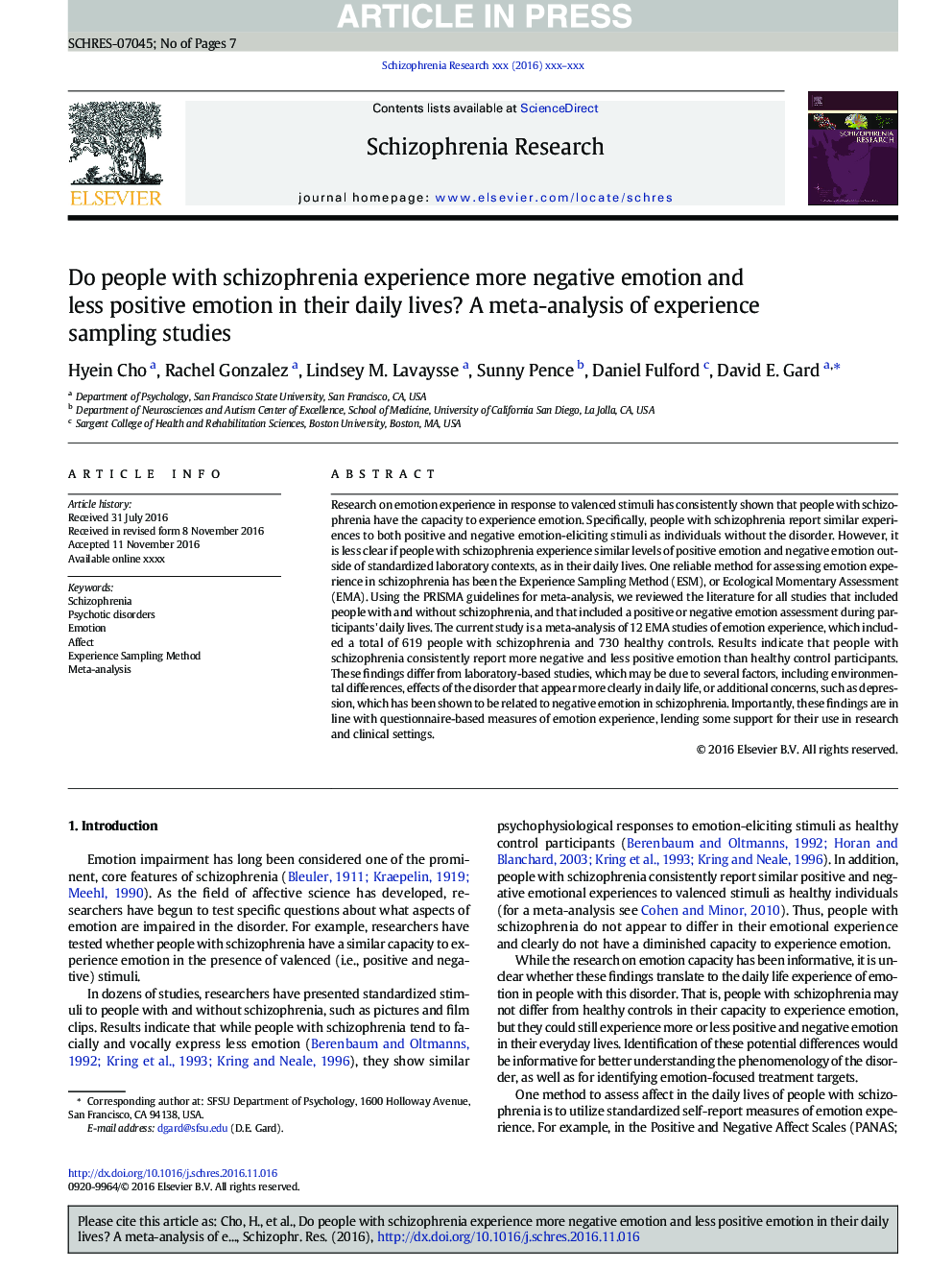| Article ID | Journal | Published Year | Pages | File Type |
|---|---|---|---|---|
| 4935055 | Schizophrenia Research | 2017 | 7 Pages |
Abstract
Research on emotion experience in response to valenced stimuli has consistently shown that people with schizophrenia have the capacity to experience emotion. Specifically, people with schizophrenia report similar experiences to both positive and negative emotion-eliciting stimuli as individuals without the disorder. However, it is less clear if people with schizophrenia experience similar levels of positive emotion and negative emotion outside of standardized laboratory contexts, as in their daily lives. One reliable method for assessing emotion experience in schizophrenia has been the Experience Sampling Method (ESM), or Ecological Momentary Assessment (EMA). Using the PRISMA guidelines for meta-analysis, we reviewed the literature for all studies that included people with and without schizophrenia, and that included a positive or negative emotion assessment during participants' daily lives. The current study is a meta-analysis of 12 EMA studies of emotion experience, which included a total of 619 people with schizophrenia and 730 healthy controls. Results indicate that people with schizophrenia consistently report more negative and less positive emotion than healthy control participants. These findings differ from laboratory-based studies, which may be due to several factors, including environmental differences, effects of the disorder that appear more clearly in daily life, or additional concerns, such as depression, which has been shown to be related to negative emotion in schizophrenia. Importantly, these findings are in line with questionnaire-based measures of emotion experience, lending some support for their use in research and clinical settings.
Related Topics
Life Sciences
Neuroscience
Behavioral Neuroscience
Authors
Hyein Cho, Rachel Gonzalez, Lindsey M. Lavaysse, Sunny Pence, Daniel Fulford, David E. Gard,
